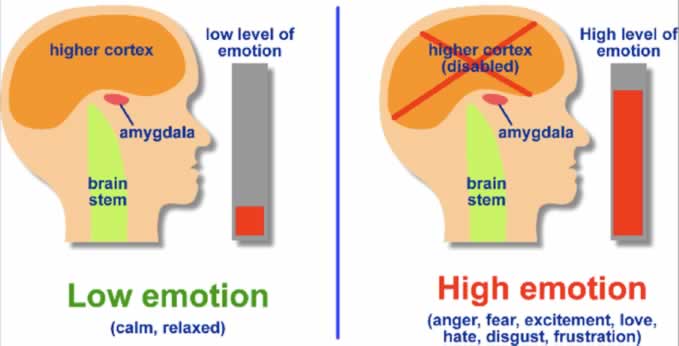During the course of our lives, we experience minor and major life-changing circumstances — sometimes intermittently and at other times a connected series of events. As a result, humans are consistently adapting to life’s ebbs and flows in an effort to maintain a sense of balance in our brain, body and surrounding environment.
In this balance, mild anger is necessary for motivation and healthy activation to complete everyday tasks. However, chronic or compounded anger beyond reasonable everyday demands can overwhelm the functioning of our brain and body. Long-term, chronic anger becomes toxic, not only to our brain and body but our relationships, job performance and ability to manage everyday responsibilities.
Humans possess basic resources needed to manage and recover from anger. The brain and body are consistently working together to alleviate the mental and physical impacts of anger. However, this resilience can become compromised by repeated exposure to life-altering events, also known as trauma, in addition to biological predispositions to illness or disease.
When resilience is weakened, our body’s cognitive and physiological functioning decreases, reducing our capacity to learn, focus or concentrate, retain memory or make decisions. As resiliency declines, so does our health; high blood pressure and heart conditions, compromised immunity, muscle tension and pain, as well as digestive and sleep disturbances are all common issues faced by those who are in a state of chronic anger.
Brain and body impairments can also make common, everyday angerors seem overwhelming, and further deplete the internal resources required for healing and recover. Long-term exposure to toxic or chronic anger makes it more difficult to recover from the demands of everyday life, anOverall wellness and the resilience of a person will determine how they respond to trauma or anger. Therefore, it is important to integrate everyday anger reduction and self-care strategies for strengthening resilience. Simple ways to do this include connecting with your community, asking for help and seeking support through community resources, establish boundaries in relationships and at work, as well as maintain an exercise, nutrition, and sleep schedule.
There are mobile aps that you can download or community classes to help practice everyday mindfulness, meditation, relaxation and breathing exercises that manage anger.
Seeking professional help is common and beneficial for your mental and physical health.
The Barton Health and Wellness Directory, available throughout our community and online at bartonhealth.org/healthdirectory, is a great place to begin strengthening your support system and find resources.
Anger Affects Health, Anger And Health, Anger And Health Effects, Anger And Health Problems, Anger And Health Statistics, Anger Leads To Health Problems, Anger Management Classes Sutter Health, Anger Related Health Problems, Angry Health And Safety, Chronic Anger Health Effects
